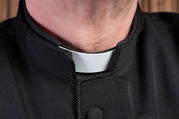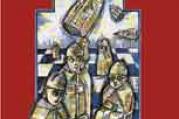Click here if you don’t see subscription options





Ubiquitous and Protean
Buried in the substantial disinformation throughout the Rev. Andrew R. Baker’s Ordination and Same Sex Attraction (9/30), old chestnuts about allegedly effeminate affective manners and proper masculine behavior most alerted my historian’s antennae. As Carolyn Dean shows in her fine recent study of sexuality between 1918 and 1940 (The Frail Social Body: Pornography, Homosexuality, and Other Fantasies in Interwar France [2000]), the crushing evidence of World War I trenches forced postwar medical doctors to abandon their fin-de-sicle belief that a male’s feminine appearance indicated same sex attraction. As a consequence, anxiety ran rampant among cultural critics throughout the 1920’s and 1930’s: if effeminate men might be heterosexual while masculine men might actually be inverts, then appearances could no longer be relied upon. Anyone might be passing for straight, raising the specter that inversion was both more ubiquitous and protean than previously thought. (The example of the burly rugby-playing hero of Sept. 11’s Flight 93, Mark Binghama gay mannicely illustrates the present-day anxieties over prudent doubt and moral certitude.) In several ways, Father Baker’s essay reflects the very latest in 19th-century thought: fascinating reading for the professional historian, but perhaps not more widely helpful.
Stephen Schloesser, S.J.





